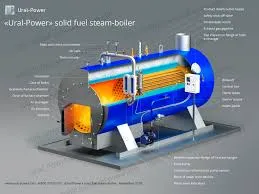
Oct . 21, 2024 05:22 Back to list
Understanding the Function and Benefits of a Hot Water Boiler System
What is a Hot Water Boiler?
A hot water boiler is a crucial piece of equipment widely used in residential, commercial, and industrial settings for heating purposes. It operates on the principle of heating water to provide warmth and hot water for various applications such as space heating, water heating, and even industrial processes. This article explores the functionality, types, benefits, and maintenance of hot water boilers.
What is a Hot Water Boiler?
There are various types of hot water boilers available, each designed for specific heating needs. The most common types include conventional boilers, combi boilers, and system boilers. Conventional boilers, also known as traditional or regular boilers, require a separate hot water storage tank and are suitable for larger homes with high hot water demands. Combi boilers, on the other hand, are compact and provide both heating and hot water on demand, eliminating the need for a separate tank. System boilers also require a storage tank but are more efficient and are ideal for smaller homes or flats.
what is a hot water boiler

One of the principal benefits of using a hot water boiler is its efficiency in providing consistent heat and hot water. Modern boilers are designed with advanced technology, offering higher energy efficiency compared to older models. This can lead to lower energy bills and reduced environmental impact. Additionally, hot water boilers deliver heat more evenly through radiators, ensuring that spaces reach desired temperatures quickly and maintaining them effectively.
Safety features are also an essential aspect of hot water boilers. Most modern models come equipped with various safety mechanisms, including pressure relief valves, temperature controls, and automatic shut-off systems, which prevent overheating and potential hazards. Regular maintenance and inspections are critical to ensuring these safety devices function correctly and prolong the lifespan of the boiler.
Maintenance of a hot water boiler is crucial for both safety and efficiency. It is recommended to have a professional service the boiler at least once a year, checking for any signs of wear and tear, leaks, and overall functionality. Homeowners should also monitor their boiler for any unusual noises or signs of decreased performance. Simple tasks such as bleeding radiators and checking the pressure gauge can also help maintain system efficiency.
In conclusion, a hot water boiler is an essential element of heating systems in many buildings. Understanding how it works and the different types available can help homeowners and businesses choose the right system for their needs. With the correct usage and consistent maintenance, a hot water boiler can provide efficient heating and hot water, ensuring comfort and convenience in daily life. As technology continues to advance, newer models will likely offer even greater efficiency and safety, benefiting users while contributing to sustainable energy consumption practices. Whether for residential or industrial use, hot water boilers play a key role in modern heating solutions, making them indispensable to countless facilities around the world.
-
Oil Fired Hot Water Boilers Sale - High Efficiency & Affordable
NewsJul.31,2025
-
High-Efficiency Commercial Oil Fired Steam Boiler for Industry
NewsJul.30,2025
-
High-Efficiency Biomass Fired Thermal Oil Boiler Solutions
NewsJul.30,2025
-
High Efficiency Gas Fired Thermal Oil Boiler for Industrial Heating
NewsJul.29,2025
-
High-Efficiency Gas Fired Hot Water Boiler for Sale – Reliable & Affordable
NewsJul.29,2025
-
High Efficiency Biomass Fired Hot Water Boiler for Industrial and Commercial Use
NewsJul.29,2025
Related PRODUCTS






















